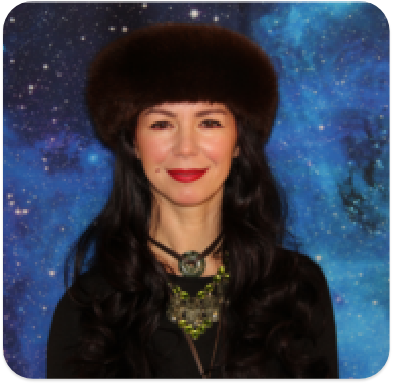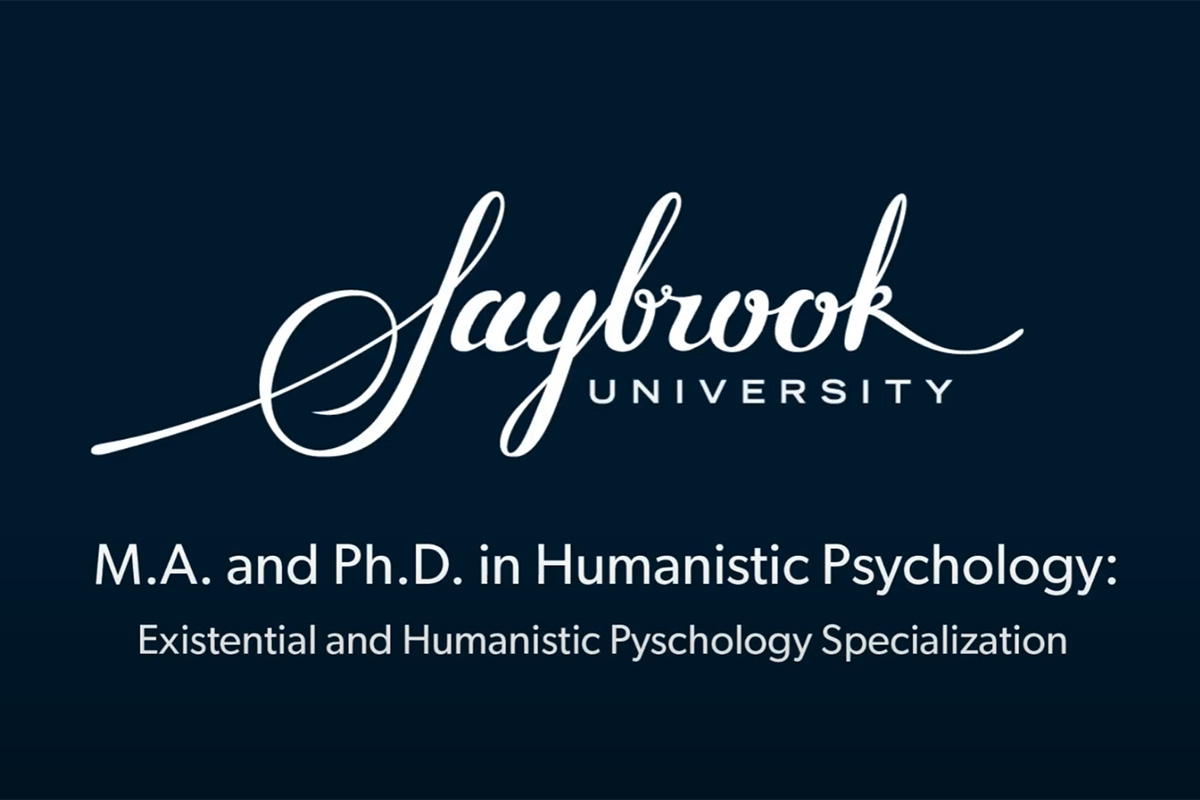Existential and Humanistic Perspectives as Your Guide through Psychology
Our online M.A. in Psychology: Existential and Humanistic Psychology Specialization draws upon our legacy of humanistic psychology and equips you with the foundational framework to better understand the human condition—encouraging personal exploration of existential meaning in life. You’ll explore applications of these fields, first by engaging with their historical and philosophical traditions. Within the online transpersonal psychology program curriculum, you will also study the contemporary landscape of psychology, ethics and laws in psychotherapy, psychotherapy in relation to existential, humanistic, and transpersonal psychology, and the work and influence of Rollo May. You will emerge carrying the torch for integrative existential, humanistic, and transpersonal perspectives, ready to facilitate transformative change and holistic well-being.
Existential and Humanistic Psychology Specialization Job Outcomes
Upon completion of the M.A. in Psychology: Existential and Humanistic Psychology Specialization, you will have an enhanced skill set and deepened perspective to augment your current practice or career. Additionally, with the appropriate licensure, if necessary,** you may expand into other areas, including:
- Health care administrator
- Community educator
- Educational consultant
- Therapist
- University professor
- Existential coach
- Academic researcher
- Spiritual counselor
Other Online Psychology Master's Programs
Interested in another specialization in psychology? We offer multiple master's degree online programs that may align more closely with your goals.
- M.A. in Psychology
- M.A. in Psychology: Creativity, Innovation, and Leadership Specialization
- M.A. in Psychology: Consciousness, Spirituality, and Integrative Health Specialization
*Credits earned may vary based on specialization courses chosen.
**Our online M.A. in Psychology program is not designed to prepare graduates to qualify for clinical licensure or certification.
Program Components
Admissions Requirements
At a minimum, you must have received, or anticipate receiving prior to the start of the semester you are applying into, a bachelor’s degree from a regionally accredited college or university before applying for a master’s degree at Saybrook. Applicants for the M.A. in Psychology: Existential and Humanistic Psychology Specialization degree must submit the following documents:
- An official transcript from an accredited university demonstrating successful completion of a bachelor’s degree, with a 3.0 GPA or better, though exceptions may be made
- Resume or CV
- Personal statement
Invest in Your Future
Saybrook University remains committed to keeping higher education affordable and accessible. Our Financial Aid Department is ready to offer guidance and support in determining suitable financial assistance tailored to your needs, including potential scholarship opportunities, grants, and more.
Cost
Saybrook wants you to have the information you need to make an informed decision about your academic and career aspirations. Our cost calculator provides an estimated cost of attending Saybrook to earn your M.A. in Psychology: Existential and Humanistic Psychology Specialization degree.
Sample Courses
Foundations of Existential and Humanistic Psychology
This three-credit course provides an overview of existential and humanistic psychology including its history and origins, its current manifestations, and its contributions to various aspects of psychology including clinical practice, its critiques, and its possible future. Saybrook University, among other important organizations in humanistic and existential psychology, remains a leading force in the development and advancement of existential and humanistic psychology and special consideration is given to its relevant history.
Psychology, Religion, and Spirituality in Their Cultural Contexts
This three-credit course provides an overview of the ways that religion and spirituality interact with psychology with special attention to the cultural context. This includes an exploration of various models for how religion and spirituality can relate to science and, in particular, psychology. The primary purpose of this course is to explore various models for the interrelationships of psychology, religion, and spirituality with special consideration given to the cultural influences upon these relationships.
Catalog
Please refer to our academic catalog for more information on the M.A. in Psychology: Existential and Humanistic Psychology Specialization program.
Career Outcomes
Saybrook University prepares you to make an impact in a variety of high-demand careers. Below, you will find possible career options and salaries associated with this degree.
Data is pulled by a third-party tool called Lightcast, which includes data from sources including the U.S. Bureau of Labor Statistics, the U.S. Census Bureau, online job postings, and other government databases. The information below represents a regional and national career outlook related to this degree program*. Saybrook University is dedicated to assisting you in achieving your career goals.
*Many degree programs are intended to fulfill licensure requirements in specific states. The data shown here may not represent the state where you currently reside. For more information on how this program is applicable to the requirements of your state, please speak with your admissions specialist.
University Learning Experience
Our M.A. in Psychology: Existential and Humanistic Psychology Specialization program is a 100% online program. While the core of this program is completed asynchronously, there are some synchronous, online features designed to deepen your educational experience. We call this a Virtual Learning Experience (VLE). In addition to the VLE, you will begin your studies with a virtual Welcome Week. Welcome Week activities, including a program orientation, are held online during the week before the start of Fall and Spring semesters. All psychology students will be required to attend only the five-day, fall semester Virtual Learning Experience (VLE) each academic year. The in-person Community Learning Experience (CLE) is also available for you to explore. The CLE is held in odd-numbered years. They are optional and not required to complete the program.

Psychology Faculty
Saybrook’s Psychology faculty are practitioner-scholars dedicated to advancing their field through continued practice and comprehensive instruction. Meet some of our faculty members below.

- Director, Consciousness, Spirituality, and Integrative Health Specialization
- Recipient, Saybrook’s Presidential Award for Excellence (2022)
- Recipient, Saybrook's Exemplary Humanistic Educator Award (2024)
UNBOUND: Humanistic Psychology
Designed for those who wish to contribute creatively to improving the human condition. Students are encouraged to explore complementary approaches—including meditation, nutrition, energy medicine, biofeedback, and spirituality—alongside more traditional forms of care.


Alumni Stories: Darlene Viggiano, Ph.D. (MFT)

Famous Athletes and Sport Psychology
Ready to Take the Next Step?
Submit an inquiry and one of our admissions specialists will connect with you to answer your questions and guide you through next steps.

























